CCG, Asia Society Co-hosts Seminar to Discuss Scientific Technology Innovation and Human Resource Transformation
June 05 , 2019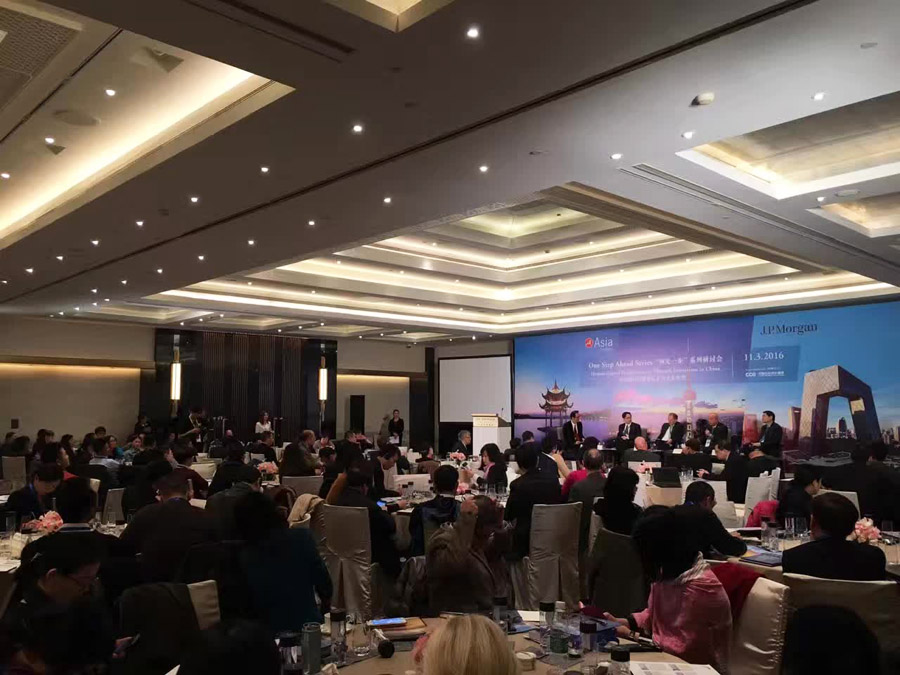
The Center for China and Globalization is invited by Asia Society as the China partner to host a seminar on Nov. 3 to discuss science and technology innovation and human resource transformation with a purpose to call for further improving education and professional training system and distribution of labor resource based on market demand.
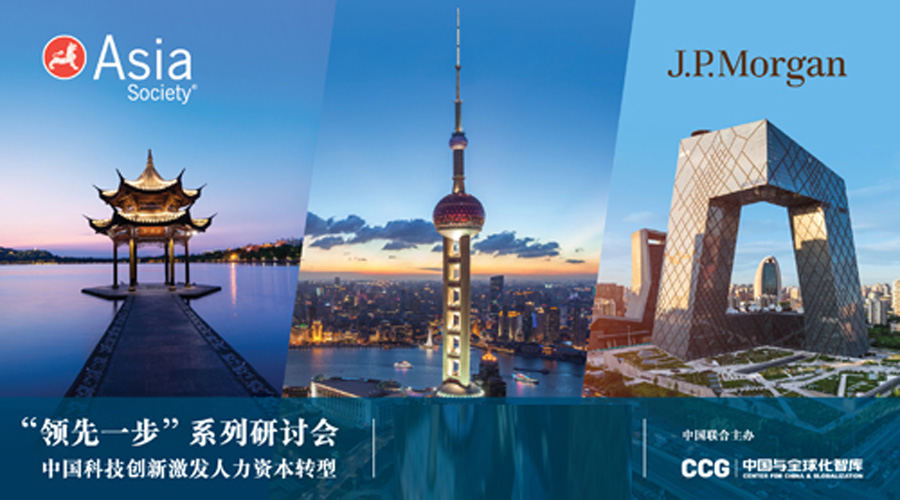
The event, as the 6th session of Asia Society’s “Step Ahead” series, gathers officials, business and academic leaders including He Xian, former Minister of Human Resources and Social Security and President of China Talent Research Institute; Ning Gaoning, Chairman of Sinochem; Zhang Yichen, Chairman and Chief Executive Officer of CITIC Capital and CCG Vice President; Ma Jun, Chief Economist of Research Bureau at the People’s Bank of China and CCG’s senior research fellow; and Lu Mai, Secretary General of China Development Research Foundation. The seminar, with a sponsorship of JP Morgan Chase, examines the most pressing issues that emerge as China is moving towards knowledge-based economy and to discuss possible solutions.
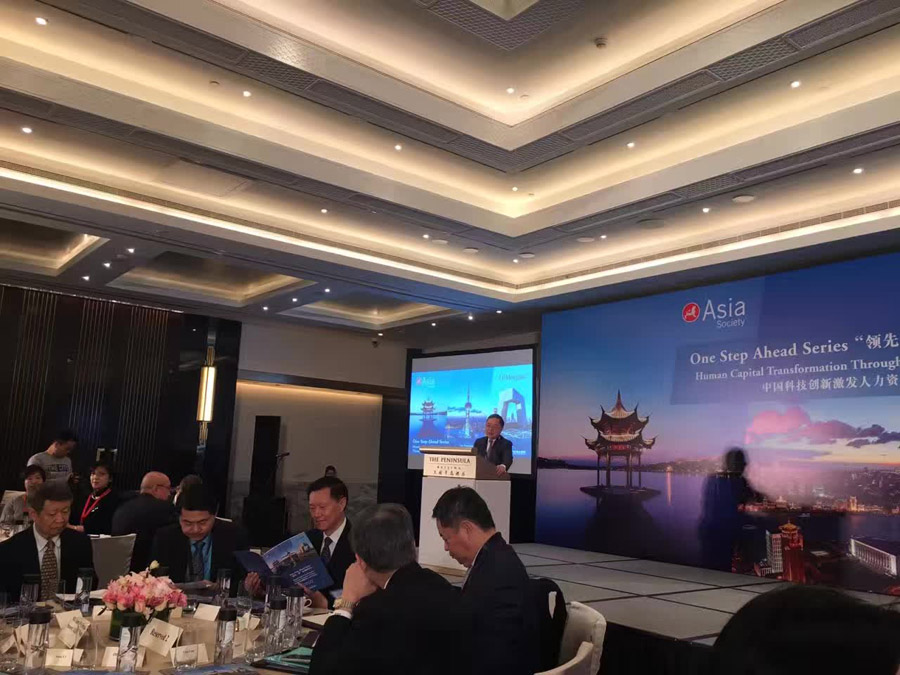
Ronnie Chan, Chairman of Hang Lung Group and the Co-Chairman of the Asia Society and CCG, believes the major challenge facing China’s overall labor market is how to meet the need of building knowledge economy, or how to transform a large number of low-skilled labor into the professionally skilled.
In 2016, around 12 million students graduated from university and vocational schools. However, facing such a big labor force, many employers still find it difficult to hire the people with right knowledge and skills. The gap between supply and demand will further widen as the economic new normal continues.
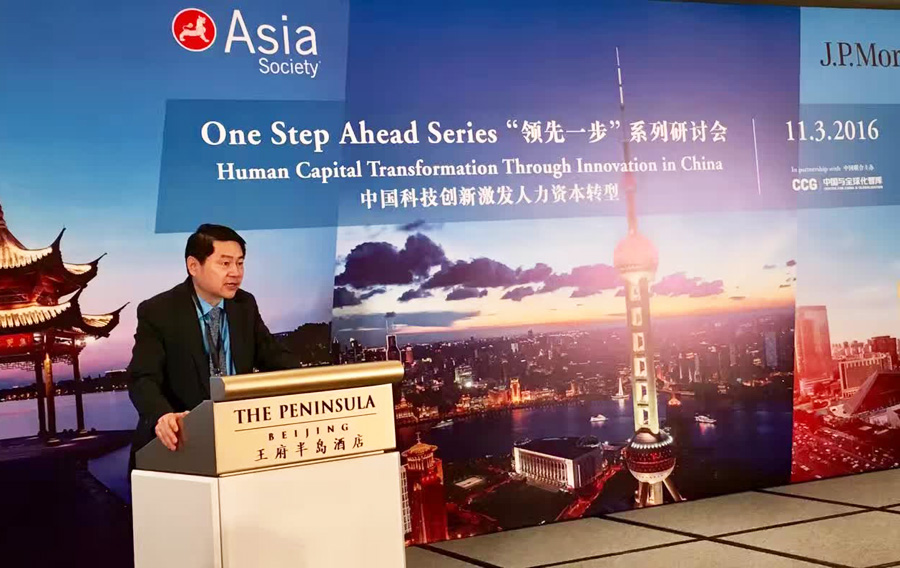
CCG President Wang Huiyao gives some key issues in human resource transformation: how to help migrant workers from rural area settle down in the city, how to improve skill training in vocational schools and function of private schools in the training, and how to attract international talent to China. In addition, he suggests that China can allow in foreign skilled workers such as Filipino nannies to fill the gap in the labor market demand.
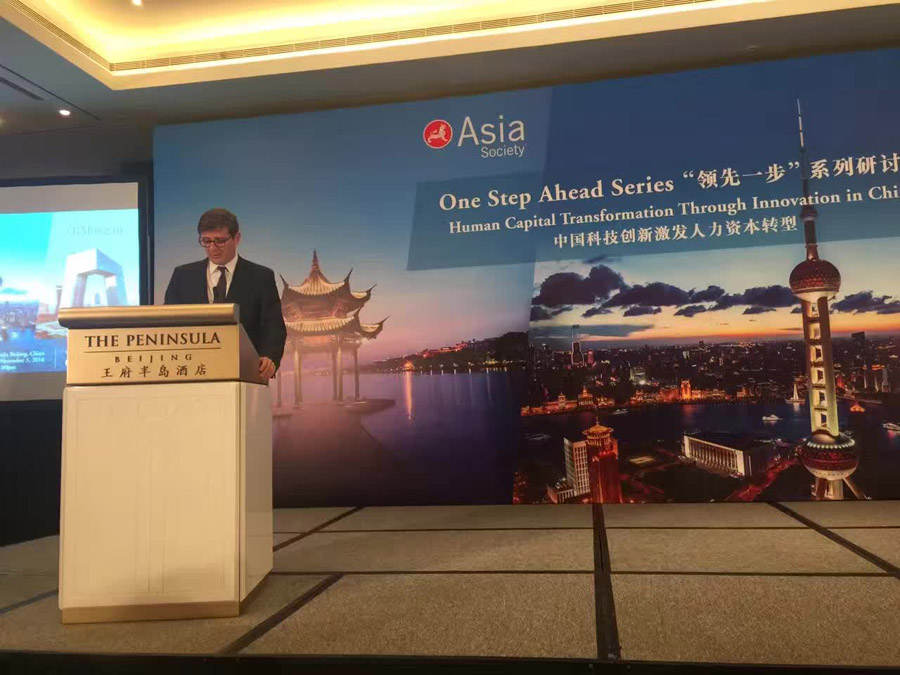
Nicolás Aguzin, Chairman and CEO of JPMorgan Chase Asian Pacific, emphasizes the importance to foster highly-skilled talent to meet the demand of the economy driven by innovation, technology and consumption.
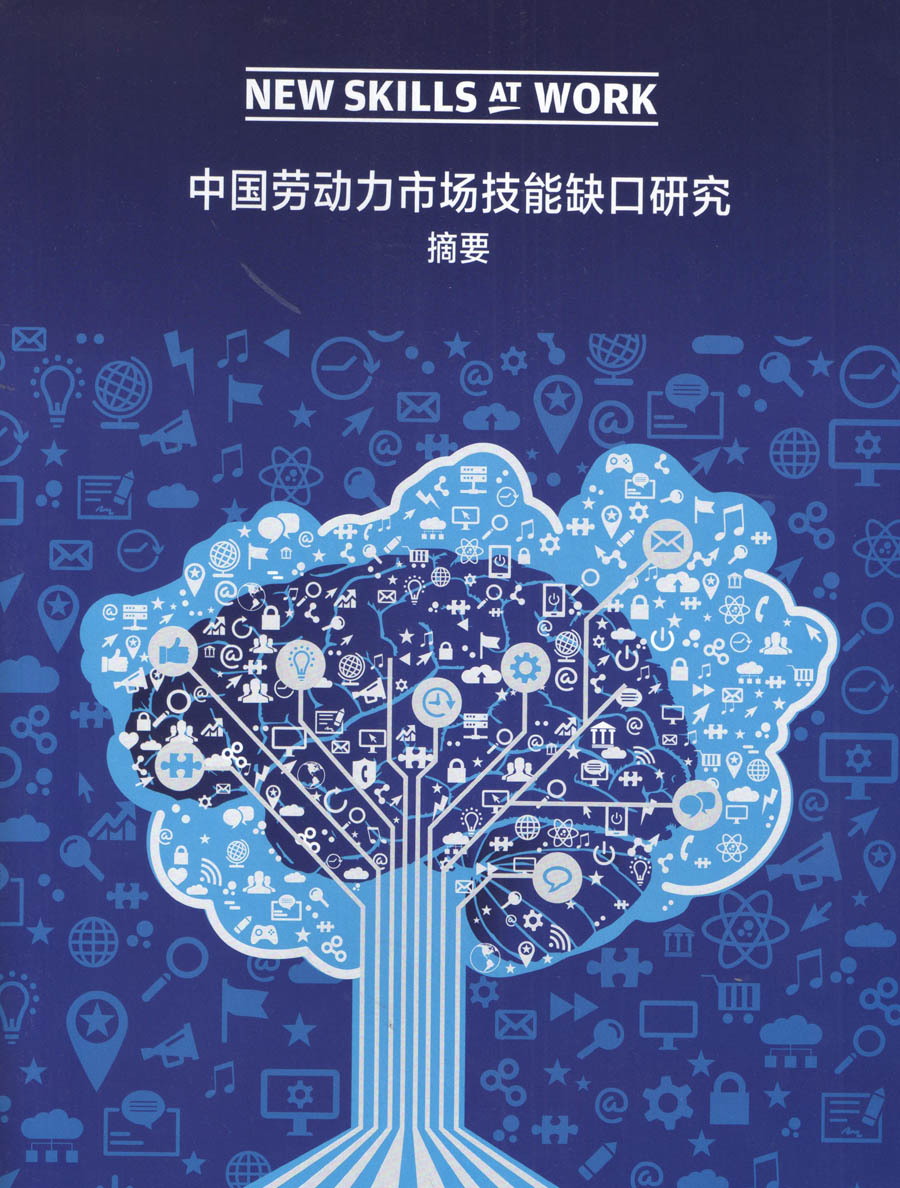
At the event, a report on the skill gap in China’s labor market is released, which is commissioned by JPMorgan Chase and jointly published by Tsinghua University and Fudan University. It provides an analysis of the two major challenges facing China’s labor market – the shortage of internationalized talent for management and strategic planning, and mismatch of labor skills in the business transformation.






